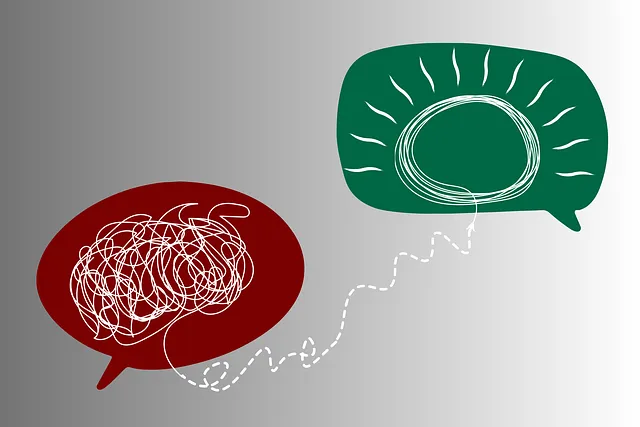Kaiser mental health classes in Boulder foster community well-being through collaborative therapy, encouraging open discussions and active listening. This approach enhances emotional healing, builds resilience, reduces stigma, and increases self-awareness. Facilitators use structured programming, effective communication, and prompts to guide meaningful conversations around crisis intervention, stress reduction, and self-esteem improvement. Pre- and post-assessments track progress while a supportive environment promotes open communication, self-reflection, and role modeling, integrating social skills training for lasting mental wellness.
Mental wellness group facilitation plays a pivotal role in fostering community support and enhancing therapeutic outcomes. This article explores effective techniques through various lenses, from understanding group dynamics in mental health settings to specific approaches like Kaiser’s model. We delve into creating safe spaces relevant to Boulder’s community and highlight essential communication strategies for facilitators. Additionally, we discuss methods to measure and improve group therapy results, offering valuable insights for professionals in the field, particularly those inspired by Kaiser mental health classes in Boulder.
- Understanding Group Facilitation in Mental Health
- Kaiser's Approach to Mental Wellness Classes
- Creating a Safe Space for Boulder's Community
- Effective Communication Techniques for Facilitators
- Measuring and Enhancing Group Therapy Outcomes
Understanding Group Facilitation in Mental Health

Group facilitation plays a pivotal role in enhancing mental wellness, especially within community settings like Kaiser mental health classes in Boulder. This collaborative approach to therapy goes beyond individual counseling, fostering an environment where participants support and learn from each other. Facilitators, akin to guides, encourage open discussions, facilitate sharing of experiences, and promote active listening among group members.
Effective group facilitation techniques are instrumental in accelerating emotional healing processes and building resilience. By creating a safe space, facilitators enable individuals to navigate their emotions, reduce stigma, and enhance self-awareness. Moreover, these sessions support risk assessment for mental health professionals by providing insights into collective challenges and opportunities for tailored interventions.
Kaiser's Approach to Mental Wellness Classes

In Boulder, Kaiser’s mental health classes have gained significant attention for their innovative approach to promoting community well-being. Their program focuses on fostering resilience and providing a safe space for individuals to navigate mental illness stigma reduction efforts. Through interactive discussions and tailored activities, these classes encourage participants to cultivate positive thinking and strengthen their coping mechanisms.
The facilitators at Kaiser’s mental wellness sessions employ various techniques to engage the group, ensuring every individual feels heard and supported. By fostering open conversations, sharing personal experiences, and employing mindfulness exercises, the environment becomes a powerful tool for healing and growth. These classes not only equip individuals with practical strategies for managing stress but also promote a sense of belonging and community among participants.
Creating a Safe Space for Boulder's Community

In Boulder’s vibrant community, fostering mental wellness is a collective effort. One powerful approach involves creating safe spaces where individuals can openly discuss their challenges and connect with support systems. Kaiser mental health classes in Boulder have become hubs for such initiatives, offering a sanctuary for minds seeking guidance and healing. These classes facilitate the exchange of experiences, promote understanding, and empower participants to navigate life’s stressors effectively.
The process begins by establishing an environment that encourages vulnerability and trust. Through structured yet flexible programming, facilitators guide discussions on various topics, including crisis intervention techniques, stress reduction methods, and self-esteem improvement strategies. This holistic approach ensures that Boulder’s residents have access to tools and resources tailored to their unique needs, fostering a sense of community resilience and well-being.
Effective Communication Techniques for Facilitators

Effective communication is a cornerstone of successful group facilitation, especially in Kaiser mental health classes Boulder. Facilitators play a vital role in guiding discussions and ensuring every participant feels heard and understood. Active listening is a key technique; it involves giving your full attention to speakers, paraphrasing their points, and asking clarifying questions. This not only demonstrates engagement but also helps to normalize experiences and foster an inclusive environment.
Using clear and concise language tailored to the group’s needs is another powerful tool. Facilitators should model healthy communication by expressing thoughts openly while respecting boundaries. Encouraging open dialogue through prompts like “Share your experience with managing anxiety” or “How do you practice self-care?” can initiate meaningful conversations around Anxiety Relief, Depression Prevention, and Emotional Well-being Promotion Techniques. This inclusive approach ensures that participants learn from one another, building a supportive community within the Kaiser mental health classes Boulder setting.
Measuring and Enhancing Group Therapy Outcomes

Measuring and enhancing group therapy outcomes is a multifaceted process that goes beyond simply tracking attendance or satisfaction levels. At Kaiser mental health classes Boulder, facilitators employ various techniques to gauge the effectiveness of their programs. One key method involves using structured assessments before and after the course to track participants’ progress in areas such as depression, anxiety, and social functioning. These assessments help identify individual improvements and highlight common themes emerging within the group dynamic.
Furthermore, fostering a supportive environment that encourages open communication and self-reflection is essential for optimal outcomes. Techniques like role modeling, active listening, and structured discussions promote participants’ Inner Strength Development. Social Skills Training is also integrated into sessions to enhance interpersonal connections and build resilience. By combining these approaches, Kaiser mental health classes Boulder strive to not only raise Mental Health Awareness but also to empower individuals with the tools needed for lasting well-being.
Group facilitation plays a pivotal role in enhancing mental wellness, as demonstrated by Kaiser’s successful mental health classes in Boulder. By creating safe spaces and employing effective communication techniques, facilitators can significantly impact individuals’ well-being. Measuring and optimizing group therapy outcomes ensures that these sessions remain impactful and accessible to all who seek support. This holistic approach, guided by principles like those practiced by Kaiser, empowers communities to navigate their mental health journeys together, fostering a tapestry of resilience and healing.






